Hi there gorgeous Ebony Woman, what a great pleasure to have you here again!
Can uterine fibroids be prevented? IF yes, how could uterine fibroids prevented? Would you like to find out? Then this blog article is meant for you! But first, will it be alright to share my personal experience with you?
I noticed a change in my period flow when I was 26, it was heavier, laden with clots and in lots of pain. This would go on for the four months, before I finally realised something was not right. I never had heavy period, it had always been light with no pain. However, growing up, my sisters experienced period pain they had to miss several days off of school.
A much-needed visit to my GP was arranged and a pelvic scan showed the culprit was one uterine fibroid inside the womb/uterus. I was pretty surprised, never thought this would happen to me, after all, I followed (still do :)) a very healthy lifestyle and being a young woman! Now if one small fibroid could cause such ruckus guess how much pain and discomfort a woman with multiple fibroids will be in? This is the reality of most women and significantly, Black women.
Uterine fibroids are the most common pelvic tumours (benign) and a major cause of prolonged heavy and painful period flow in women. They are made of muscle-fibrous tissue that develops inside the womb or attached to the outer part of the womb.
In my clinical practice and years of talking to other women, I have encountered those with uterine fibroids, who anticipate their periods with some trepidation, due to expected anaemia from heavy period flow, necessitating iron infusion or blood transfusion. The resulting increased tiredness means they struggle to carry on with usual daily activities and even miss days off work and or studies. There is a well-documented profound negative effect of uterine fibroids on women’s fertility, exerting strain on relationships, and yet, we do not talk well enough about this within our black community!
There is still way too much silence, fear and stigma associated with anything that has to do with a woman’s period; some find it hard to discuss their monthly cycle struggles with their friends, families, even partners.
Uterine fibroid is a life altering condition that a woman should not suffer in silence, we should have the freedom to discuss it without the fear of being judged or misunderstood. Let us endeavour to create an environment to encourage our female friends, work colleagues or siblings to speak up about their period concerns because you will be surprised to discover you are not alone and there is great support available.
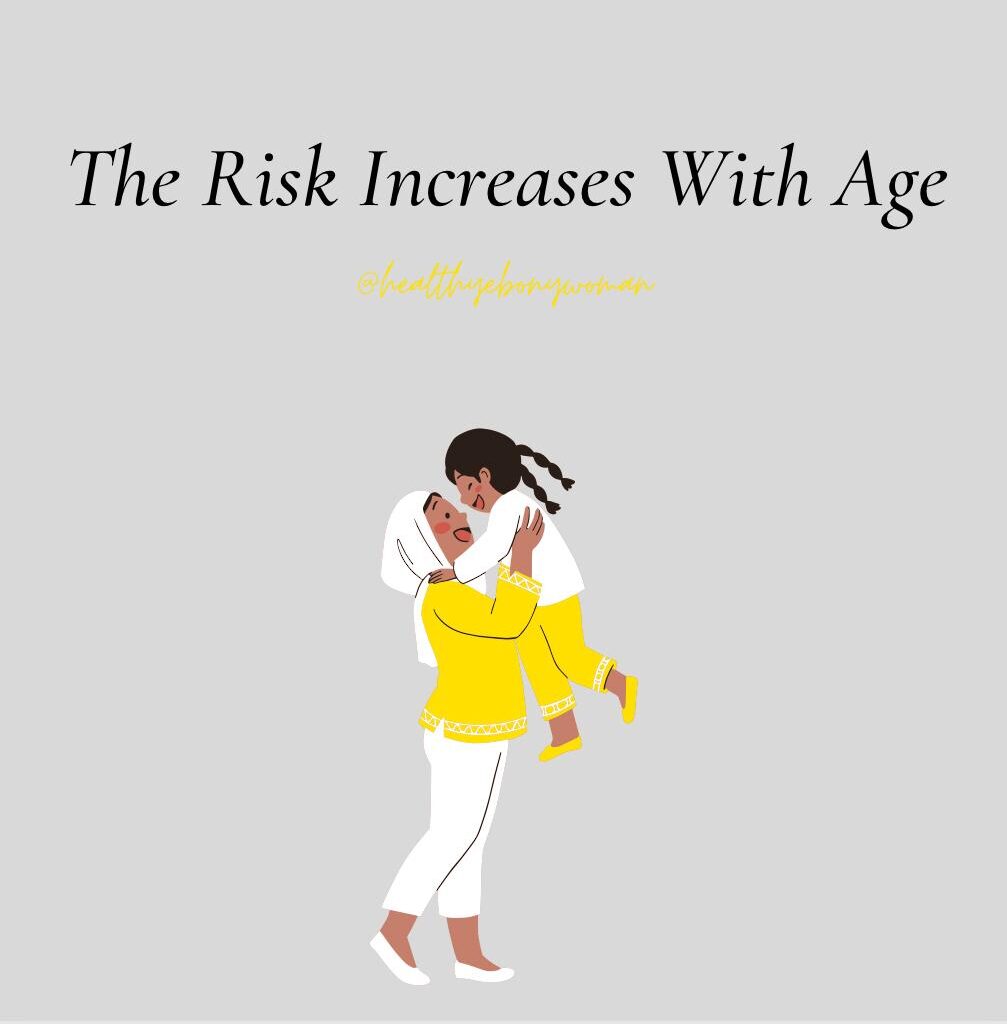
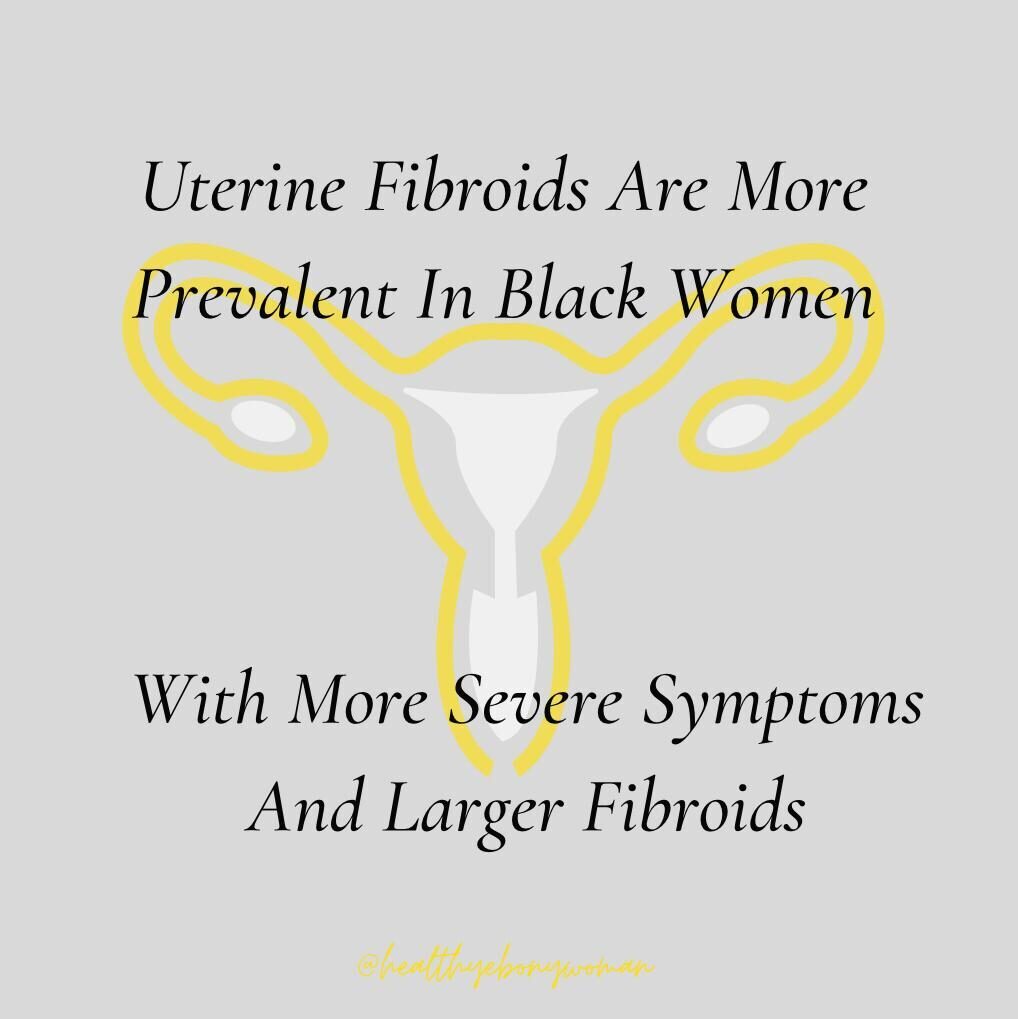
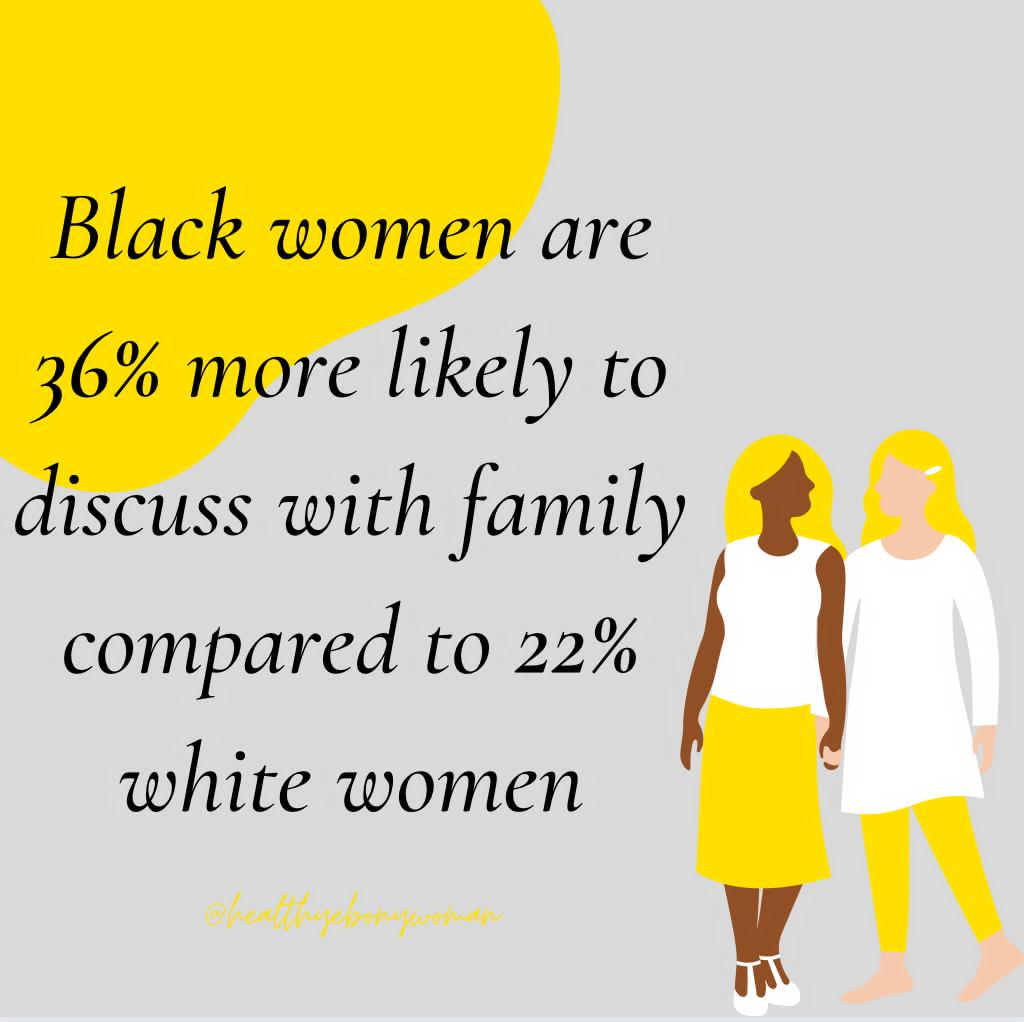
Uterine Fibroids and Black Women
This shows there is a positive shift in how we are voicing our health concerns, although more work is still needed.
Let’s explore the Risk Factors to having uterine fibroids and if indeed these can be prevented.
There are various risk factors and most notably is the influence of both female hormones, oestrogen and progesterone, others are:
- African ancestry.
- Early onset of menstruation
- A woman who hasn’t given birth to a child (Nulliparity) ,
- Genetics.
An interesting fact but read with caution: Smoking appears to reduce the risk of fibroids! But please note that smoking carries other significant health complications.
You will mostly agree with me there is not much sway we have over the above risk factors, nevertheless, let us have a look at some preventable risk factors, including: Obesity, Diet and Vitamin D.
Obesity increases the risk of developing uterine fibroids by two-three folds, please read my blog post on a few medical reasons why weight loss could be challenging for some women, one of them is, increased level of oestrogen which is also a known risk of fibroids. Sustained stress caused from racial discrimination can potentially increase the risk of a black woman being overweight and leading to fibroids by 11 times!
A Diet high in beef and ham is an increased risk to uterine fibroids. This is due to stored levels of oestrogen in animal meat and dairy products including milk. On the flip side; a diet rich in green vegetables is evidenced to significantly reduce the risk.
The lycopene from the family of carotenoids, found in the yellow, orange and red colours of the fruits and vegetables reduces the risk of fibroids. Lycopene’s main source is the red colour of tomatoes and pink grapefruits. There is highest consumption of lycopene in Italy and lowest in the United Kingdom.
Vegetables and fruits are high in dietary fibres; they contain vitamins, minerals, antioxidants and phytochemicals. Phytochemicals are mainly found in fruits and vegetables, they strengthen our immune system, prevent DNA damage to cells that can lead to cancer and other diseases. They have antioxidant properties that protect the cells of the body from oxidative damage from water, food, and the air.
Vitamin D: Sufficient level of vitamin D is associated with a reduced risk of uterine fibroids. High melanin concentrations in black populations’ skin reduce the absorption of ultraviolet rays from the sun which leads to less vitamin D production.
Black people are more susceptible to low vitamin D especially if you live in the western countries, consequently, a single daily dose of vitamin D supplement bought over the counter can be life-saving for most of us. However, a higher dose may be required if there is significant Vitamin D deficiency, please check with your healthcare professional.
So! What do you think? Are uterine fibroids preventable? A short answer, No, however there are some lifestyle changes we can make as previously mentioned that can significantly reduce the risks of developing one. I hope this has been useful for you.
There is so much more to discuss on uterine fibroids, do you have questions please send me a confidential email on healthyebonywoman@gmail.com. It would be a great pleasure to have a chat with you.
You are amazing, my healthy ebony woman!
Edited 29 March 2022
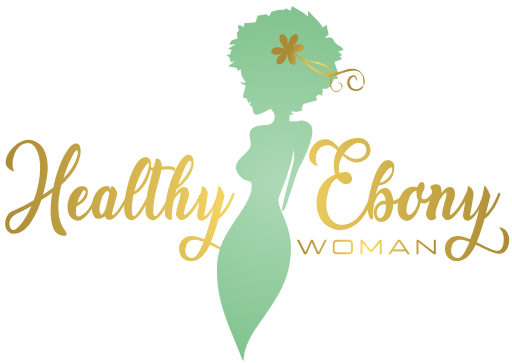
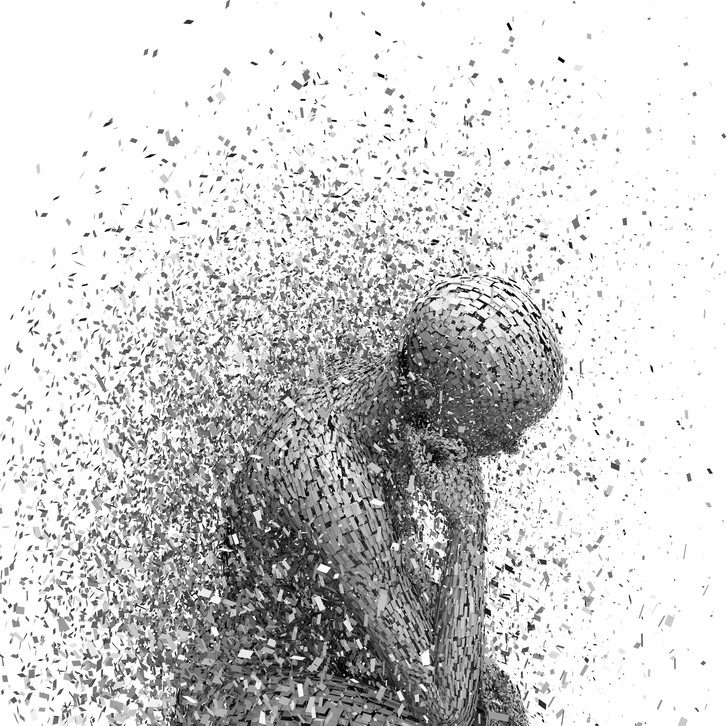

This is very informative. Thank you for sharing this well needed blog post.
Thank you so much for the feedback!
Thank you so much for this post, very informative. Unfortunately as you said it can not be prevented but risk can be reduced by a healthier lifestyle. I am one of the lucky ones who did not have fibroids but I have met quite a number of women who suffer from them and it does affect their quality of life significantly. Besides the anaemia and its undesirable effects, fibroids, depending on size, can become a challenge even with conceiving and chid birth too. Such an important subject that need to be talked about and put out there. A lot of women suffer in silence, it is taboo in some cultures, one just doesn’t talk about it. In other cultures like the Hebrews as we see in the Bible, a woman is considered unclean when they are bleeding, your husband will not come near you at this time. Yet, fibroids make you bleed heavier, sometimes longer, in excruciating pain, possibly hormonal on top of that, and your husband cannot be near you, just at that crucial time when you want love and support, care and comfort from the one you love. Such women, would be very grateful to know that they are not alone in this and most importantly, that there is nothing wrong about them.
I have an experience as a child, I think I was 7 or 8 when my aunt visited. She was sick. All she could do was lay down. She just lay there on our kitchen floor. For a black woman she was so pale, her skin tone turned almost white. Mum tried to get her to eat or drink, she refused. I just sat there in the corner observing, what was significant to me was the deep raw smell of blood, you know that smell that sits in the back of your throat and doesn’t shift. It filled the whole room and stayed even longer after she had left. Right now as I remember the experience, I can still smell it. I got to know a time later when I was older that my aunt was bleeding. She did not make it. She died 2 days later. I cannot help but wonder, had we been in a different situation where there was access to healthcare and information could she have lived? Surely a blood transfusion could have sufficed. I am not suggesting she had fibroids because I don’t know that, the point I am getting at here is that these are challenges faced by black women across the globe, those on deprived areas do not have access to information like this, accessing healthcare can also be an issue and letting go of societal and cultural misconceptions could make us beautiful healthy Ebony women we are.
Oh wow! This is so interesting and sad at the same time. First, I know it happened a while ago, I’m sorry to hear about your Aunt. This is precisely why we need to create awareness and and opportunities for women to talk about our period issues so we can get timely help. Thank you so much Izzy for sharing this experience with us.